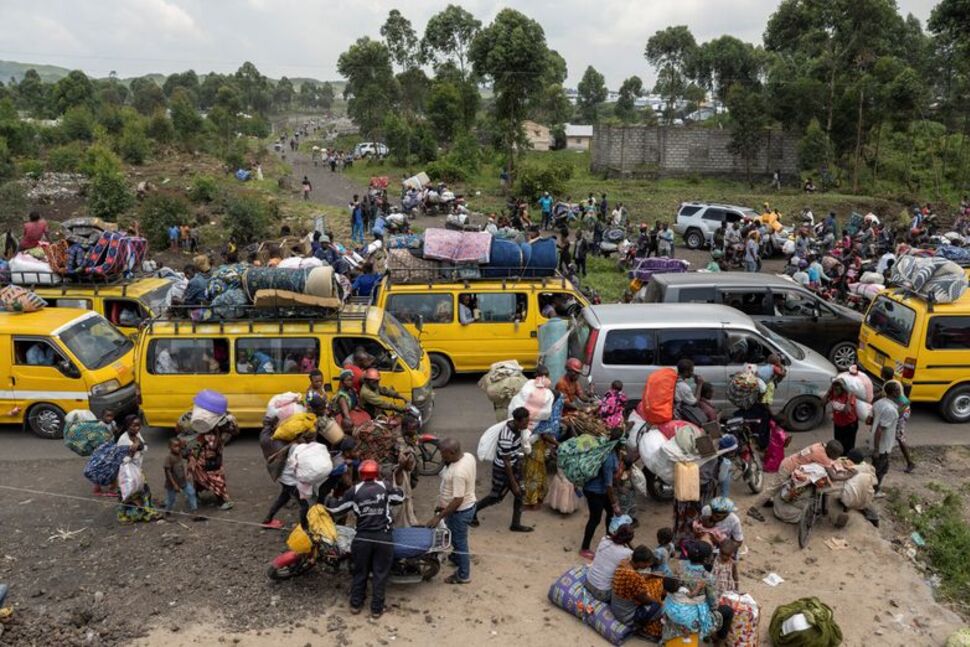
Goma, the largest town in the area and home to a significant Congolese army presence, has become the focal point of this mass exodus. Residents of neighboring villages, like Olive Luanda from Sake, recount harrowing scenes of soldiers abandoning their posts, prompting civilians to flee in fear of the advancing M23 fighters.
“Soldiers warned us that the M23 rebels were advancing, and we had no choice but to flee,” shared Luanda, highlighting the sudden and desperate nature of the displacement.
Despite the arduous journey to Goma, which can take up to five hours on foot from Sake, the safety of the city is far from guaranteed. Recent days have seen rockets raining down on the city’s outskirts, albeit causing no casualties, underscoring the indiscriminate nature of the conflict’s reach.
Alain Bauma, a 29-year-old resident forced to abandon his home in Sake, encapsulated the profound sense of uncertainty and displacement gripping the fleeing population. “We fled Sake because we fear for our lives,” he expressed, laden with his belongings as he sought refuge in Goma. “The city is under attack, and we are left with nowhere to go.”
The inability of Congolese President Felix Tshisekedi to quell the violence despite his reelection in December has raised doubts about the government’s capacity to restore peace. Analysts point to Tshisekedi’s ongoing struggle to fulfill promises of stability in the region, exacerbating the plight of civilians caught in the crossfire.
Accusations levelled against Rwanda for providing military support to the M23 rebels further complicate the situation, with the United Nations echoing Tshisekedi’s claims, despite Rwanda’s vehement denial.
As the conflict escalates and displacement surges, the future remains uncertain for the people of Goma and its surrounding areas, trapped in a cycle of violence with no end in sight.
